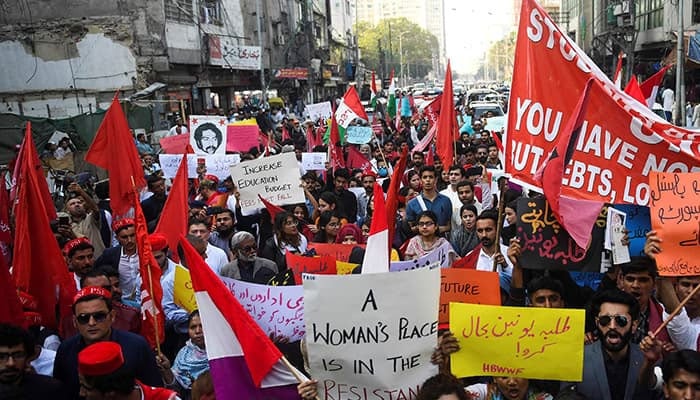Politics
The last student union election in Pakistan occurred in 1983, a significant gap that has led to a considerable shift in the political landscape.
The previous generations who participated in these elections—Baby Boomers (born between 1946-1965) and Generation X (born between 1965-1980)—were deeply engaged in student politics.
They experienced democracy at its most fundamental level, actively participating in student unions and shaping their leadership qualities through this involvement.
Several prominent politicians emerged from student politics during this period, including figures such as Jahangir Badar, Javed Hashmi, Amin Ul Haq, Liaqat Baloch, Abid Hasan Minto, and Meraj Muhammad Khan.
These individuals began their political careers as student union leaders, working within organizations like the NSF, DSF, and JI.
Their leadership skills were honed through grassroots engagement, leading their peers, advocating for student rights, and participating in university governance.
However, this tradition of student political involvement has diminished over the decades. Today’s Millennials (born between 1981 and 1996) and Generation Z (born between 1997 and 2012) constitute more than half of the population but have largely been excluded from student unions and local government elections.
The emerging Generation Alpha (born from 2013 onwards) may also miss out on experiencing democratic practices during their formative years. The absence of student political engagement over two or three generations has serious consequences for democracy.
The theoretical knowledge and practical experience of democratic processes are lost as the institutions that once provided these experiences fade from memory.
This void contributes to the weakening of democratic norms and facilitates the rise of anti-democratic forces. In Pakistan, extremist organizations have exploited this gap, recruiting young people from university spaces due to the lack of organized, democratic opposition.
The stagnation of political leadership is another issue. With no new leadership emerging from student politics, the status quo persists, and those who have held power since the post-Zia era remain entrenched in their positions.
The same individuals frequently rotate through various government roles, stifling innovation and political growth.
This perpetuates a cycle where political power remains concentrated among a few, often wealthy and influential families, leaving little room for grassroots or middle-class representation.
The ban on student unions has also fostered an environment where ethnic and religious student organizations dominate, leading to fragmented and exclusive political spaces.
This situation undermines the possibility of diverse, ideologically-driven electoral contests where students from different backgrounds might collaborate or compete based on shared principles rather than ethnic or regional affiliations.
Furthermore, the exclusion of young people and women from active political roles has become more pronounced.
Previously, student politics was a platform for women and youth to engage in leadership. Now, political involvement often depends on familial connections rather than merit or grassroots activism.
The 40-year hiatus in student politics and local government elections has eroded the culture of accountability. Those in power have operated with impunity, unchallenged by a vibrant, active student and local governance structure.
The failure of the Boomer and Gen X generations to rectify this situation by allowing younger generations to participate and devolving power to local bodies has exacerbated these issues.
The notion that banning student unions would resolve political turmoil has proven to be misguided. The resulting vacuum has led to increased extremism and a deeper entrenchment of the existing political elite.
The longer this situation persists, the more severe the consequences will be, further undermining democracy and leading to even greater instability.


